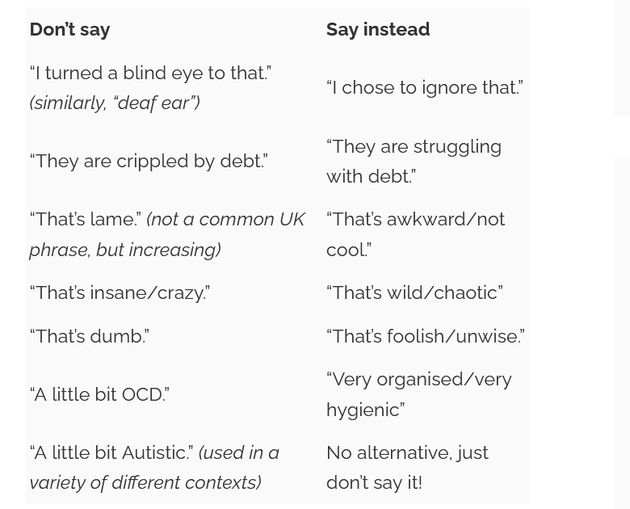What about wrong choices in the words that we use, especially words that might relate to additional needs or disability?
![Photo: [link]Kate Kalvach[/link] Unsplash CC0.](https://cms.evangelicalfocus.com/upload/imagenes/60ec770554cbb_katekalvach940.jpg) Photo: [link]Kate Kalvach[/link] Unsplash CC0.
Photo: [link]Kate Kalvach[/link] Unsplash CC0.
Previously, I’ve reminded us of the “Go Compare!” TV advert and how we should “Go Cherish!” instead when thinking about the children and young people we journey with that have additional needs.
This time, I want to remind us of another TV advert and how it can help challenge us to get our language right concerning people of all ages, including children and young people, with additional needs or disabilities.
In the TV advert for car company ‘cinch’, Rylan Clark-Neal advises ‘Mandy’ to make sure she’s made the right choice, before adding, knowingly looking at her boyfriend, “Because sometimes we don’t, do we!”
We can all make wrong choices in all sorts of ways, I have and I’m sure you can think of occasions when you have too, but what about wrong choices in the words that we use, especially words that might relate to additional needs or disability?
I’ve written before about my pet hate, which is when in church we are asked to “Please stand to worship”. It’s such an excluding phrase, suggesting that standing is a requirement for worship (it isn’t) and even the alternative often used of “Please stand to worship, if you’re able” isn’t much better either as it again separates people by ability, as well as failing to recognise people who might manage to physically stand for a while but will do so in pain and will carry that discomfort with them for the rest of the day.
If you wonder what I say instead, well I tend to use a phrase something like this, “We’re going to worship now; please remain seated, stand, or dance, as you prefer. God really doesn’t mind.” And of course, he doesn’t!
But this column isn’t just about my pet hate, it’s about the lexicon of words and phrases that we can commonly use but which can be so toxic for people with additional needs or disabilities, and their families.
My thanks to Canadian film maker, actor, and TV host Nicole Stamp @nicolestamp for recently getting me thinking more about this. Here’s a few examples of things we can commonly say but shouldn’t, and some more appropriate alternatives to use instead:

I’m sure you can think of many that I’ve missed. Let’s treat negative disability metaphors in the same way that we would treat negative gender, racial, or cultural metaphors, for example.
These phrases should disappear from our language, they have no place there, but this will only happen if we make a conscious effort to do so. Let’s make our language inclusive and remove the toxic phrases that can reinforce negative stereotypes and cause so much hurt.
If you want to explore this topic in more depth, here’s a link to a helpful article by Sara Nović on the BBC website:
So, in concluding, let us be encouraged by these words written by Paul to the church in Ephesus nearly 2,000 years ago. Words that still hold great truth for us today;
“Do not use harmful words, but only helpful words, the kind that build up and provide what is needed, so that what you say will do good to those who hear you”. Ephesians 4:29.
Or, as Rylan puts it, let’s “make sure we make the right choice, because sometimes we don’t, do we?”
Mark Arnold, Director of Additional Needs Ministry at Urban Saints. Arnold blogs at The Additional Needs Blogfather. This article was re-published with permission.

Las opiniones vertidas por nuestros colaboradores se realizan a nivel personal, pudiendo coincidir o no con la postura de la dirección de Protestante Digital.
Si quieres comentar o